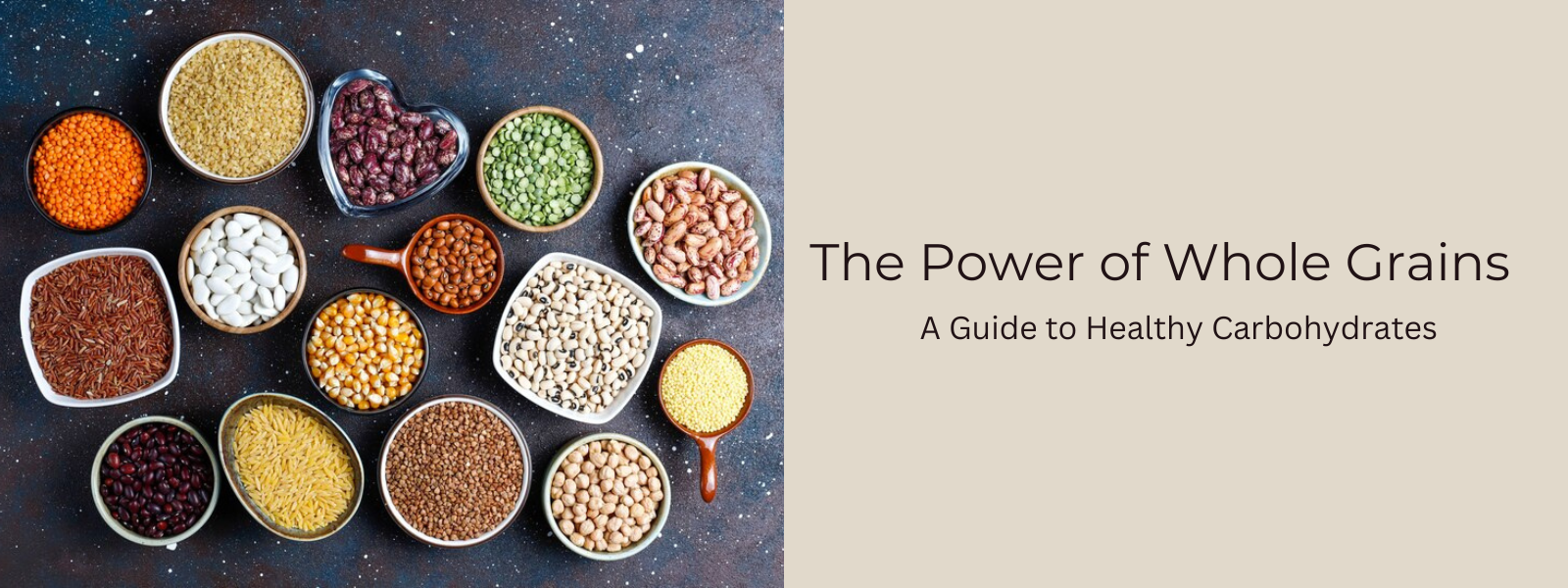Whole grains have been a staple in human diets for thousands of years, providing essential nutrients and health benefits. Unlike refined grains, whole grains retain all parts of the grain kernel, including the bran, germ, and endosperm. This makes them richer in nutrients and fiber, contributing to a healthier diet.
Table of Contents
What are Whole Grains?
Whole grains are grains that have not been stripped of their nutrient-rich components. Common examples include wheat, oats, barley, quinoa, brown rice, and corn. Each whole grain is composed of three parts:
- Bran: The outer layer, rich in fiber, antioxidants, and B vitamins.
- Germ: The nutrient-dense core containing vitamins, minerals, healthy fats, and phytochemicals.
- Endosperm: The starchy middle layer that provides carbohydrates and proteins.
Nutritional Value of Whole Grains
Whole grains are packed with essential nutrients, including:
- Fiber: Promotes digestive health and helps maintain stable blood sugar levels.
- Vitamins: Particularly B vitamins (thiamin, riboflavin, niacin, and folate).
- Minerals: Such as iron, magnesium, zinc, and selenium.
- Proteins: Provide essential amino acids.
- Antioxidants: Include phenolic acids, flavonoids, and vitamin E.
Are Whole Grains Rich in Antioxidants?
Yes, whole grains are rich in antioxidants. They contain a variety of antioxidant compounds such as phenolic acids, flavonoids, and tocopherols (vitamin E), which help combat oxidative stress and reduce inflammation in the body.
Whole Grains Antioxidant Health Benefits
- Heart Health: Antioxidants in whole grains reduce oxidative damage to cells, lowering the risk of cardiovascular diseases.
- Anti-Inflammatory Properties: Antioxidants help reduce chronic inflammation, a risk factor for many diseases.
- Cancer Prevention: Some studies suggest that the antioxidants in whole grains may help reduce the risk of certain cancers by protecting cells from damage.
- Diabetes Management: The fiber and antioxidants in whole grains help regulate blood sugar levels and improve insulin sensitivity.
Overall Health Benefits of Whole Grains
- Digestive Health: High fiber content in whole grains promotes regular bowel movements and prevents constipation.
- Weight Management: Whole grains can help with weight management by promoting a feeling of fullness and reducing overall calorie intake.
- Nutrient-Rich: Whole grains provide a wide range of essential nutrients that support overall health.
- Blood Sugar Control: The complex carbohydrates and fiber in whole grains help maintain stable blood sugar levels.
Ways to Use Whole Grains
- Breakfast Cereals: Start your day with whole grain cereals like oatmeal or whole grain muesli.
- Baking: Use whole grain flour in baking bread, muffins, and pancakes.
- Side Dishes: Serve brown rice, quinoa, or barley as a nutritious side dish.
- Snacks: Enjoy whole grain snacks like popcorn, whole grain crackers, or granola bars.
Whole Grains Recipes
- Quinoa Salad: Combine cooked quinoa with chopped vegetables, herbs, and a light vinaigrette for a healthy, protein-rich salad.
- Whole Grain Bread: Bake bread using whole grain flour for a nutritious and hearty loaf.
- Oatmeal: Cook rolled oats with milk or water, and top with fruits, nuts, and a drizzle of honey for a wholesome breakfast.
- Barley Soup: Add barley to vegetable or meat soups for added texture and nutrition.
Conclusion
Incorporating whole grains into your diet is a simple yet powerful way to enhance your overall health. Their rich nutrient profile, high fiber content, and antioxidant properties make them an essential component of a balanced diet. From promoting heart health and aiding in weight management to providing sustained energy and supporting digestive health, whole grains offer a multitude of benefits. Whether enjoyed in a hearty bowl of oatmeal, a refreshing quinoa salad, or a slice of whole grain bread, whole grains can elevate your meals while nourishing your body. Embrace the wholesome goodness of whole grains and take a step towards a healthier, more vibrant life.











Leave a comment